
How to Write an Academic CV
Whether you're a professor, lecturer, postdoctoral researcher, graduate, student, or scholar, an academic CV might just be for you. While a modern CV adheres to two pages, an academic CV focuses on academic experience and is utilised by those seeking research, teaching, and faculty positions at universities and research institutions.
In the highly competitive academic landscape, your CV holds the power to unlock exciting scholarships, prestigious positions, and exceptional research or PhD opportunities. Writing a CV that successfully navigates Applicant Tracking Systems (ATS) is essential, as is selecting the right academic CV template.
In this article, we cover:
What to include in your academic CV
Tips on how to write an academic research CV
Academic CV examples for different CV sections.
How to list publications on an academic CV.

Academic CV example

Download this CV example - Academic CV PDF.
Isabella Bennett, an academic and accomplished professional selected the California CV template to showcase her expertise. She seamlessly combines teaching, research, and her education in nutrition and STEM fields, creating an academic CV that will get her noticed. Check out the matching academic cover letter example.
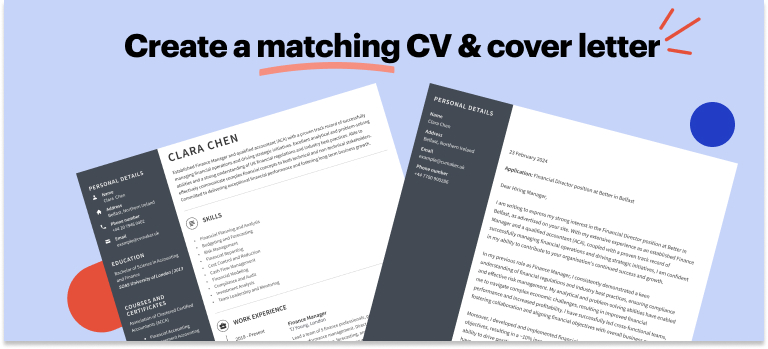
What to include in an academic CV?
An academic CV, like a good cover letter, should be tailored to a specific job or position. It should highlight the most relevant experiences, skills, and publications that directly align with the requirements of that job.
One strategy is to create a master CV - a comprehensive document that contains all the relevant information about your education, work experience, skills, achievements, and qualifications. It serves as a repository of your professional history and can be used as a reference when tailoring your CV for specific job applications.
Pro Tip
A CV should be a dynamic document you regularly update as you progress in your academic career. Continually update and refine your CV to reflect new achievements, publications, and experiences as they arise.
The best academic CV format should include some, if not all, of the following key CV sections and information to effectively showcase your qualifications, research experience, and achievements:
Personal profile
Education
Research Experience
Publications
Presentations and Conferences
Grants and Funding
Teaching Experience
Professional Service
Honours and Awards
Skills
Professional Memberships
References.
If you're writing an academic CV for a PhD application, keep reading for more tips!
Personal profile or summary for an academic CV
Highlight your academic achievements, research interests, and professional goals in 4 to 6 lines. For a more detailed approach, follow the below steps:
Begin your profile with a brief introduction about yourself, mentioning your academic qualifications.
Clearly state your research interests and any specific areas of expertise. Highlight the research questions you are passionate about and the broader impact of your research.
Mention any soft skills relevant to your field.
Use clear and concise language to make your profile easy to read and understand.
Tailor your personal profile based on the position or opportunity you are applying for.
Finally, carefully proofread your personal profile for any errors or typos. Ensure that it flows smoothly and effectively represents your qualifications and aspirations.

Example of personal profile on an academic CV
Dedicated researcher with a strong background in molecular biology, focusing on understanding mechanisms of genetic regulation in cancer development. PhD in Biochemistry with multiple publications in renowned scientific journals, bringing expertise in molecular techniques, genomics, and data analysis. Passionate about translational research and contributing to novel cancer treatment therapies.
Example of personal profile on an academic CV for a PhD
Ambitious and driven individual seeking admission into the PhD program in Psychology. Master’s degree in Cognitive Neuroscience. Committed to pursuing cutting-edge research in cognitive development, specifically investigating the impact of early experiences on brain development and learning processes. Strong background in experimental design, data analysis, and neuroimaging techniques.
If you’re a current PhD student or looking to apply for a doctorate, take a look at our PhD CV example for tips.
Example of personal profile on an academic CV for masters application
Highly motivated individual with bachelor’s degree in Biology. Keen interest in environmental conservation, eager to explore the intricate relationship between human activities and the natural world. Solid foundation in ecological principles, data analysis, and fieldwork through academic coursework and research experiences.
Pro Tip
A personal profile is an opportunity to showcase your background, research interests, and career goals. Ensure it aligns with the rest of your CV and creates a positive impression on the reader.
For more tips, refer to how to write a personal profile with over 30 examples.
How to show work experience on an academic CV
When showcasing experience, it is important to highlight relevant positions and responsibilities demonstrating your expertise, research skills, and contributions to the academic community. This might include activities such as research projects, scholarly activities, lectures, publications, teaching and more. Refer to the below on how to present work experience:
Start with the most recent position.
Focus on research-related roles.
Describe responsibilities and achievements.
Quantify achievements if possible.
Include teaching or mentoring experience.
Highlight relevant skills.
Use action verbs and concise language.
Tailor to the specific application.
Proofread and format consistently.
Academic research CV example
Research Assistant | Department of Psychology, University of Oxford | Oxford, UK, 2019 - Present
Contributed to research projects on memory formation, conducting literature reviews and assisting in design and implementation. Collected and analysed behavioural data, ensuring accuracy using statistical software. Collaborated with researchers to prepare manuscripts for peer-reviewed journals. Recruited and scheduled participants, maintaining ethical standards. Presented research findings at seminars and conferences, engaging in scholarly discussions.
Published a research article titled "Exploring the Role of Cognitive Processes in Memory Formation" in a reputable peer-reviewed journal, contributing to the advancement of knowledge in the field.
Received the Best Presentation Award at a national conference for effectively communicating complex research findings on the impact of cognitive processes on memory consolidation, demonstrating excellence in research and presentation skills.
Academic advisor CV example
Academic Advisor, University of London, 2022 - Present
Conduct one-on-one meetings with students to discuss academic goals, course selection, and career aspirations. Identify students who are struggling academically and provide guidance or referrals to support services. Coordinate with other campus departments to provide comprehensive support to students. Attend training sessions, workshops, and conferences to enhance advising skills and knowledge.
Provided guidance to undergraduate and graduate students regarding academic and career planning, which resulted in a 20% increase in student retention.
Facilitated workshops on time management, study skills, and career exploration for over 200 students annually.
Collaborated with faculty and staff to create support programs for at-risk students, improving their academic performance by 15%.
Pro Tip
Your experience should demonstrate your ability to conduct research, collaborate with others, and make valuable contributions to academia, so make sure to back up your claims with measurable achievements.
Refer to how to list achievements on a CV for more information.
Top skills to include on an academic CV
It is important to emphasise your academic and transferable skills and customise the skills section to match the requirements of the position or program you're applying for. Always use clear and concise language to effectively convey your skills and their relevance.

Examples of hard skills:
Research
Data analysis
Reporting
Laboratory techniques
Programming languages
Statistical analysis
Data visualisation
Grant writing
Literature review.
Examples of soft skills:
Writing and communication
Teaching and mentoring
Analytical and critical thinking
Organisation and time management
Collaboration and teamwork
Adaptability and flexibility
Leadership
Problem-solving
Attention to detail
Pro Tip
Include a mix of hard and soft skills to present a well-rounded profile demonstrating your expertise, abilities, and suitability for the job.
Education section on an academic CV
Given your academic background, it's important to highlight this section or emphasise it by detailing specific courses, grades, or accomplishments. Use the following tips to effectively present your education section:
Begin with your highest level of education and work backwards chronologically.
Specify the exact degree you have obtained, such as a Bachelor of Science, Master of Arts, or Doctor of Philosophy.
If you're pursuing a degree, indicate it as "In Progress", or the year you are expected to graduate.
Mention the university/institution.
Include honours and distinctions.
If relevant, include notable courses/modules or grades.
Example of education:
Doctor of Philosophy in Neuroscience | University of Cambridge, UK, 2024
Master of Science in Psychology, University College London, UK | 2019
Distinction in Thesis Research
Relevant coursework: Advanced Neurobiology, Experimental Design and Statistical Analysis, Cognitive Psychology.
For more tips, check out the education section on a CV.
Tips on how to list publications on an academic CV
Listing publications is essential for an academic, showcasing your research contributions and achievements. Follow the below step-by-step guide on how to include the publications section:
Dedicate a section specifically for your publications. You can label it "Publications" or "Selected Academic Publications."
List your publications in reverse chronological order, with the most recent publications first.
Provide the full citation for each publication in a consistent and standardised format. Include the authors' names, title of the paper, name of the journal or conference proceedings, volume/issue number (if applicable), page numbers, and publication year.
If it's an accepted or in-progress publication, mention it as "Accepted" or "In progress" along with the journal or conference name.
Specify your roles in the publication, such as first author, co-author, or corresponding author.
Maintain a consistent format throughout the publications section, including font style, size, and spacing. For clarity and readability, you can use bullet points or a numbered list.
If possible, provide Digital Object Identifier (DOI) links or hyperlinks to your publications.
Example of publications:
Smith, J., Johnson, A., & Anderson, B. (2022). Title of Article. Journal of Neuroscience, 45(2), 123-145.
Anderson, B., Johnson, A., & Smith, J. (2021). Title of Conference Paper. Proceedings of the International Conference on Cognitive Science, 32-40.
Johnson, A., Smith, J., & Anderson, B. (2020). Title of Book Chapter. In S. Lee (Ed.), Advances in Neuroscience Research (pp. 78-92). Publisher.
Key takeaways
Tailor your CV to the specific position or program you're applying for.
Structure your CV logically with clear headings and subheadings.
Highlight notable achievements like publications, presentations, awards, and grants.
Emphasise research experience, methodologies, and outcomes.
Maintain a clean and professional layout, consistent formatting, and error-free content.
Next steps?
If you need to fix inconsistencies in your CV or create one from scratch, our professional CV Writing Services can help you make a strong impression. You can also use our easy-to-use CV builder to choose from expert templates or customise existing CV examples.
FAQ
What is the difference between academic CV and professional CV in the UK?
These types of CVs differ in purpose, length, format, and focus. An academic curriculum vitae template showcases academic achievements, research experience, publications, and field contributions. It spans multiple pages and is geared towards academic positions, grants, fellowships, and graduate programs. On the other hand, a professional CV emphasises professional experience, skills, and achievements. It is tailored for non-academic roles in diverse industries and sectors.
What is the best academic CV layout?
The best CV layout for this purpose is clean, organised, and easy to read. It should effectively highlight your academic qualifications, research experience, publications, and other relevant information. While there isn't a single "best" layout that suits everyone, it’s important to present information in a way that is easy to navigate and allows the reader to assess your qualifications and achievements quickly.
How to include academic CV references?
In this field, it is not common practice to include references directly on the CV itself. Instead, you would typically provide a separate document or page dedicated to your references, often called a "References List" or "References Sheet." It's important to check the specific requirements or preferences of the institution or employer you are applying to, as some may have specific instructions on how they prefer to receive references.
How long should an academic CV be?
The length of this type of CV can vary depending on your specific circumstances, including the stage of your career, the depth of your experience, and the requirements of the position or program you are applying for. In most cases, a CV for a position within academia can range from two to four pages. Still, it is not uncommon for more experienced academics with extensive research and publication records to have CVs that extend beyond four pages.
What is the best academic CV for masters application UK?
While there is no one "best" CV format, following these guidelines will help you create a strong CV that effectively presents your achievements and potential as a Masters student. Here are some important aspects to include in your CV:
List your educational background in reverse chronological order, starting with your most recent degree. Include the institution name, degree title, dates of study, and any relevant coursework or dissertation details.
Highlight any research experience you gained during your undergraduate studies or internships. Include the project titles, the institutions or supervisors you worked with, and a brief description of your contributions and outcomes.
If you have any research publications or conference presentations, list them with full bibliographic details. Include the title, authors, journal/conference name, publication year, and relevant impact factors or citations.
Highlight your academic and technical skills relevant to the field of study you are applying for. This may include laboratory techniques, software proficiency, data analysis skills, or language proficiency.
Mention any academic honours, scholarships, or awards you have received during your undergraduate studies.
What order should be followed on an academic CV?
The order of sections on a CV may vary based on individual preferences and the specific requirements of the position or program you are applying for. Remember to customise the order and emphasis of sections based on your background and the requirements of the position or program you are applying for. Keep the layout clean, organised, and easy to navigate, using consistent formatting throughout the CV.
How do I write an academic Phd CV?
When writing a CV for a PhD application, it's important to highlight your academic qualifications, research experience, publications, and other relevant information that showcases your potential as a PhD candidate.
How do I write an academic CV with no experience?
Even without direct experience, highlight your achievements, skills, and potential for future growth. Tailor your CV to the specific program or position you are applying for, emphasising the aspects of your background that align with their requirements.
What to exclude on an academic CV?
When creating a CV, it's important to be selective and include only relevant information highlighting your qualifications and achievements. Here are some things you should generally avoid including:
Unless a particular work experience directly relates to your academic field or research, it's best to omit it from your CV. Focus on highlighting research experience, teaching experience, and academic-related roles.
While including basic personal information like your name, contact details, and professional website or LinkedIn profile is necessary, avoid including personal details such as your date of birth, marital status, or photographs.
Unless your hobbies or interests are directly relevant to your academic field or demonstrate transferable skills, including them in your CV is generally not necessary.
Once you have completed higher education, such as a bachelor's or master's degree, it's generally unnecessary to include your high school education. Instead, prioritise higher-level qualifications and relevant achievements.
While showcasing honours, scholarships, and awards is important, avoid including unrelated non-academic achievements or accomplishments, such as sports achievements or irrelevant certifications.
While it's important to highlight relevant academic and technical skills, only include unrelated or generic skills directly related to your field of study or research interests. Focus on skills that are specific to your academic discipline or research area.
Should I put skills on academic CV?
Yes, including skills on your CV can be beneficial. While the primary focus of a CV for this type of position is on your education, research experience, and publications, including a skills section allows you to highlight specific abilities relevant to your field of study or research area.
How to write academic achievement in CV?
When writing about achievements in your CV, it's essential to highlight your accomplishments and provide specific details to showcase your academic excellence. Here are some tips to effectively describe your academic achievements in your CV:
Clearly state your achievements in a concise and specific manner. Instead of using general statements, provide details that highlight your accomplishments.
Include information that demonstrates the significance and relevance of your achievements. This can include the name of the award, the organisation or institution granting the award, the criteria for selection, and any additional recognition received.
Whenever possible, include quantitative measures to provide context and make your achievements more impactful.
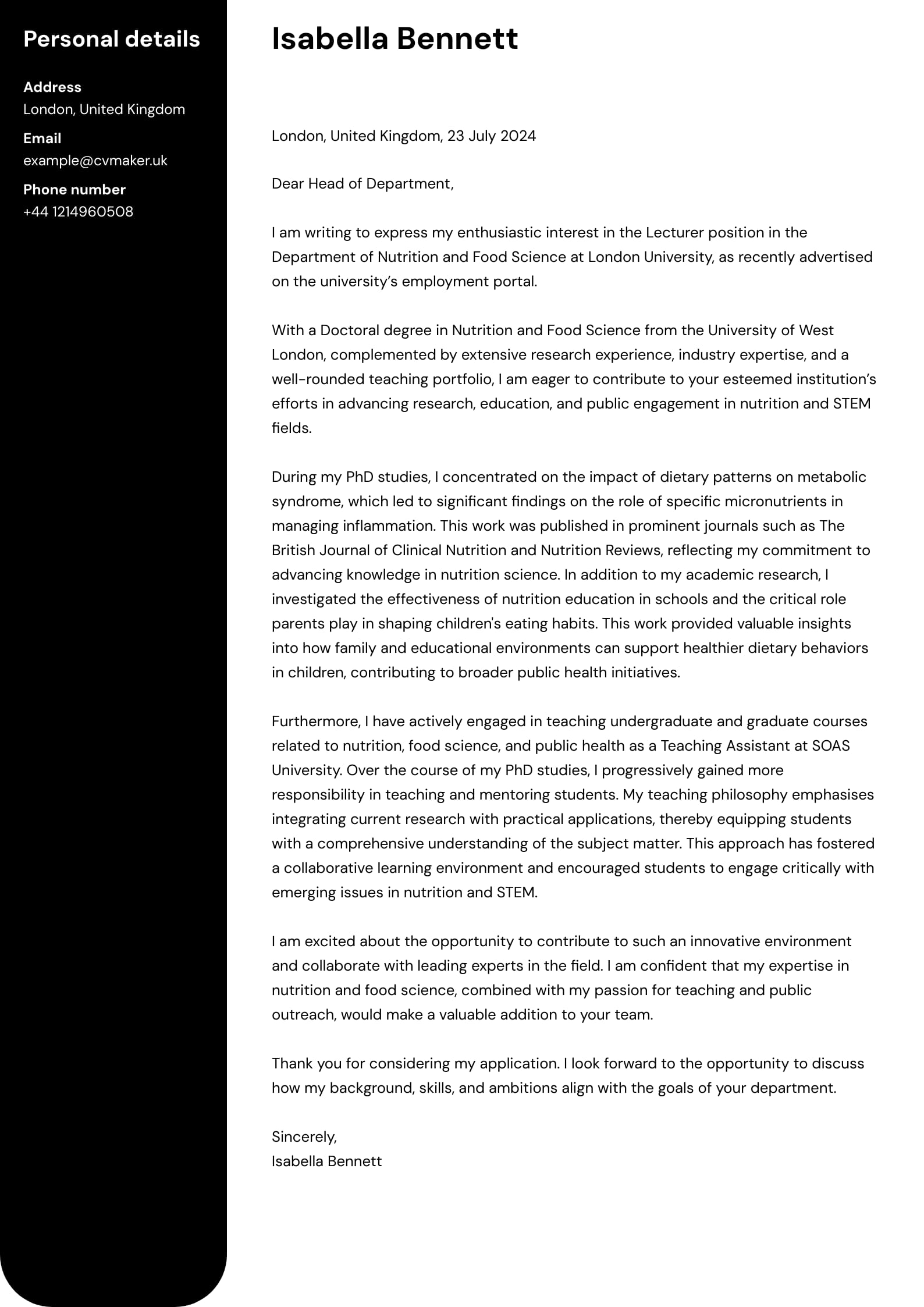
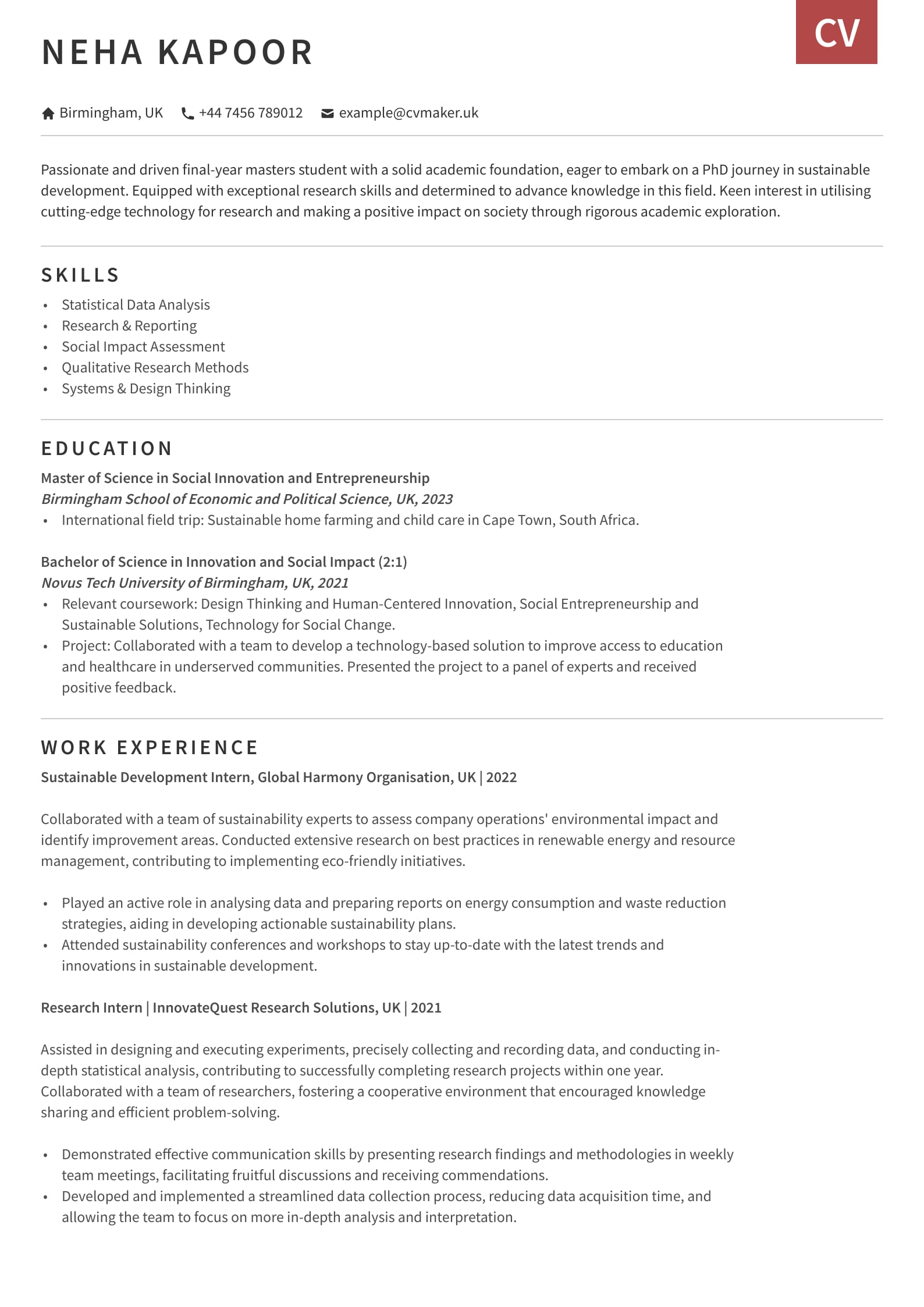
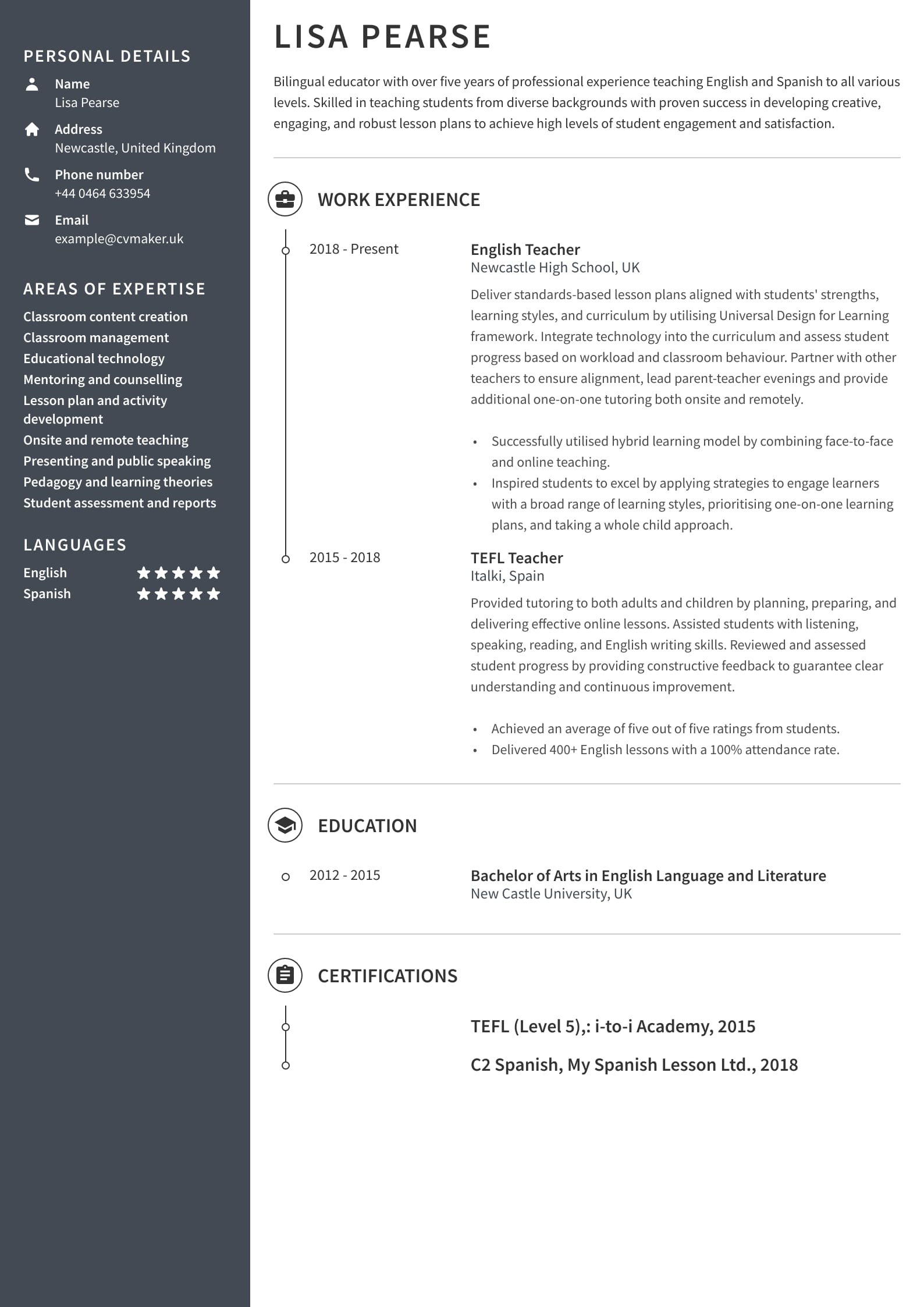
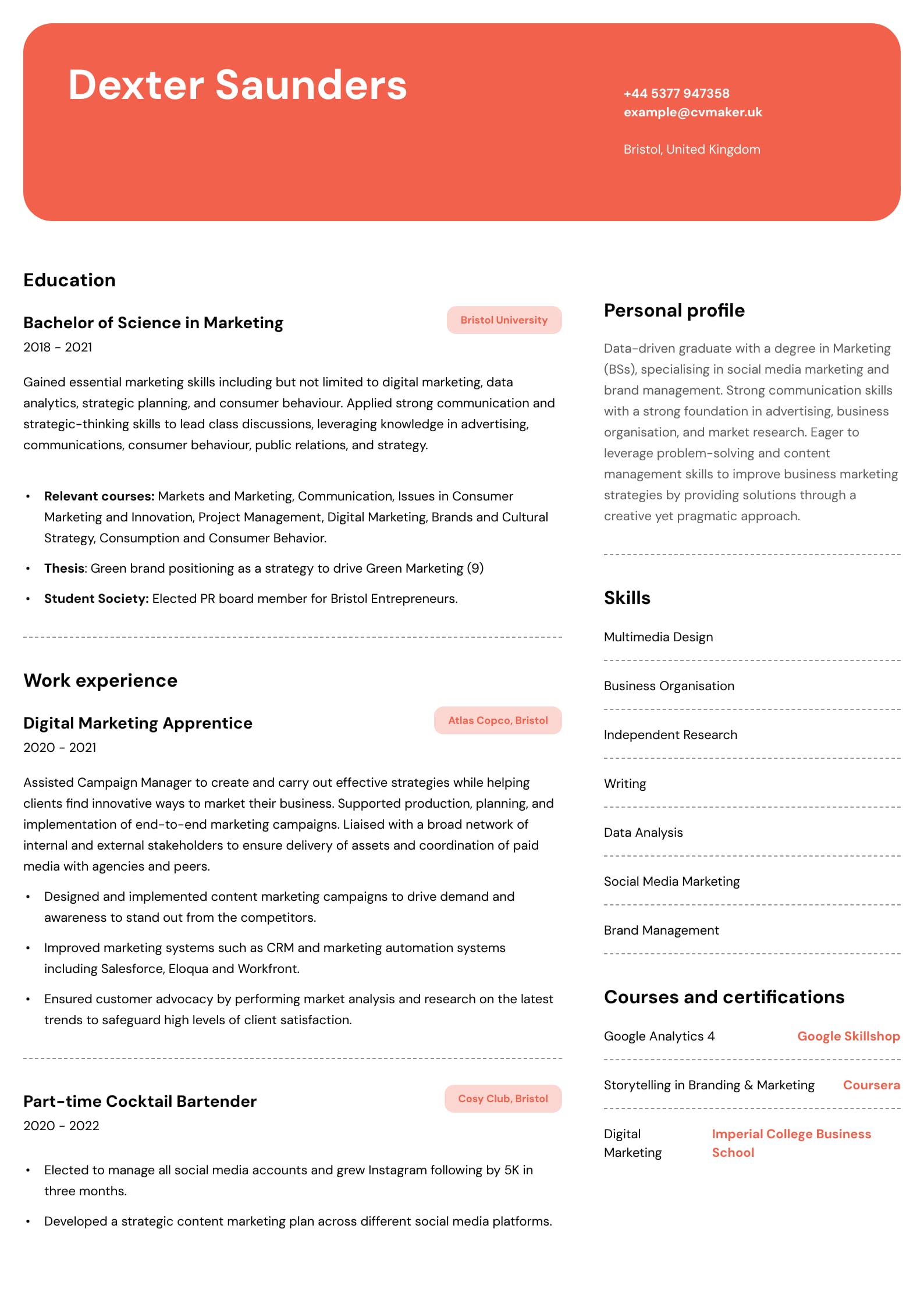


)
